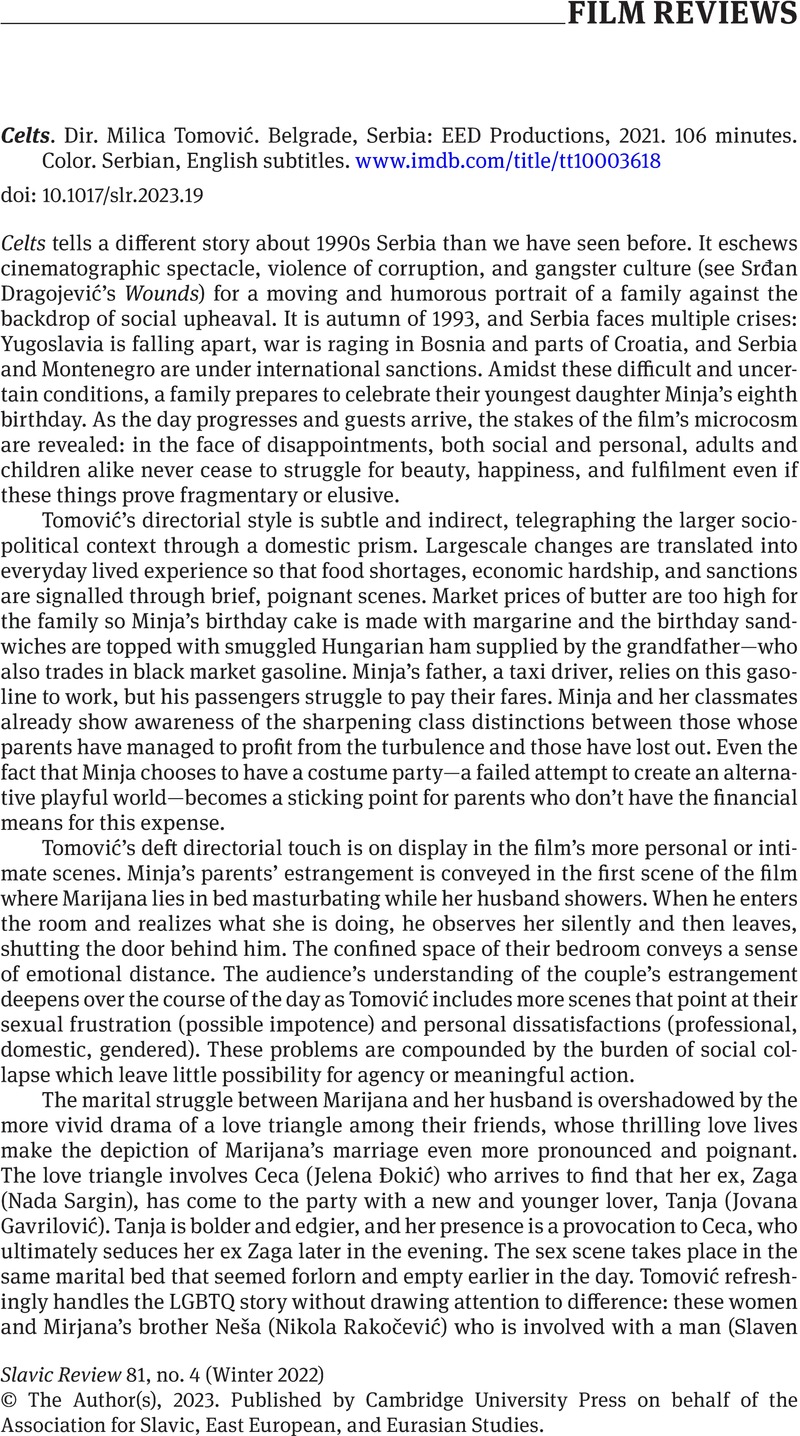No CrossRef data available.
Article contents
Celts. Dir. Milica Tomović. Belgrade, Serbia: EED Productions, 2021. 106 minutes. Color. Serbian, English subtitles. www.imdb.com/title/tt10003618
Review products
Celts. Dir. Milica Tomović. Belgrade, Serbia: EED Productions, 2021. 106 minutes. Color. Serbian, English subtitles. www.imdb.com/title/tt10003618
Published online by Cambridge University Press: 12 May 2023
Abstract
An abstract is not available for this content so a preview has been provided. Please use the Get access link above for information on how to access this content.

Information
- Type
- Film Reviews
- Information
- Copyright
- Copyright © The Author(s), 2023. Published by Cambridge University Press on behalf of the Association for Slavic, East European, and Eurasian Studies

